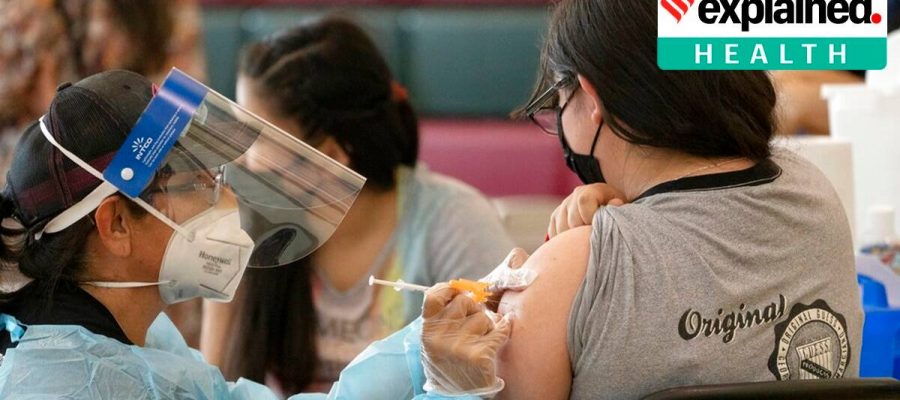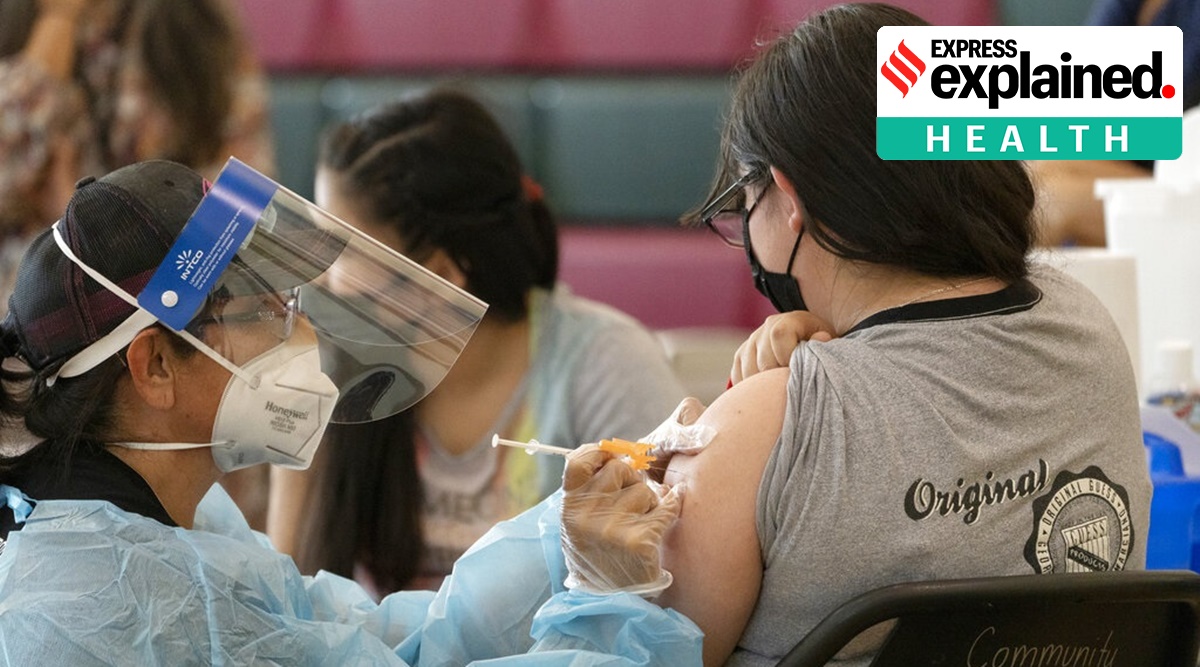The CDC report posits that while vaccine effectiveness against infection may have fallen because of the Delta variant, vaccines are still significantly effective in protecting against severe disease and death from Covid-19.
On Friday, the US Centers for Disease Control and Prevention (CDC) released a report that monitored the incidence of Covid-19 cases, hospitalisations and deaths by individuals’ vaccination status from April 4 to July 17 across 13 jurisdictions.
This is the time when Covid-19 cases due to the Delta variant of the virus had started to surge in the country. In the US, three vaccines are being administered currently, including Pfizer-BioNTech, Moderna and Johnson and Johnson’s single-dose vaccine.
The report has come just around the time when US President Joe Biden announced new federal coronavirus vaccine requirements as the country is struggling to contain the highly infectious Delta variant of Covid-19.
Biden’s mandate calls for compulsory vaccinations of employees of federal government and large private sector companies. The mandates are not being welcomed by everyone, especially some members and supporters of the Republican party, who see them as infringing their freedom.
As per latest data from the CDC, 53.6 percent of people in the US are fully vaccinated and 62.9 percent have at least one dose of the vaccine.
What the CDC report says
Broadly, the report says that the incidence of SARS-CoV-2 infection, hospitalisation, and death is higher in unvaccinated than vaccinated persons. It also says that the incidence rate ratios of the disease are related to vaccine effectiveness.
In other words, the report posits that while vaccine effectiveness against infection may have fallen because of the Delta variant, vaccines are still significantly effective in protecting against severe disease and death from Covid-19.
In the 13 jurisdictions that were assessed, between April 4 and July 19, over 569,142 Covid-19 cases were reported among the unvaccinated people. These cases were 92 percent of the total cases detected during the time. Significantly, 34,972 hospitalisations (92 percent) and 6,132 COVID-19 associated deaths (91 percent) were also reported among the unvaccinated people.
In contrast, cases among fully vaccinated people numbered at 46,312 or eight percent of the total. 2,976 hospitalisations were reported among them and 616 deaths.
Newsletter | Click to get the day’s best explainers in your inbox
Overall, during the period between April 4 and June 19, fully vaccinated persons accounted for 5 percent of the cases, 7 percent of hospitalizations and 8 percent of deaths. At this time, the vaccination coverage was 37 percent in the areas surveyed. The report notes that assuming vaccine effectiveness of 90 percent, vaccinated people should have contributed 6 percent of the total cases.
What other studies have said about the Delta variant and vaccine effectiveness
A study published in the journal Nature this month says that the Delta variant has a much higher ability to infect, and to evade the immune response gained through previous infections or vaccines. As of now, the Delta variant, or the B.1.617.2 lineage of the SARS-CoV-2 virus, was first discovered in Maharashtra and fuelled the second wave in the country.
It is now dominant not just in India but also in several other countries. According to the World Health Organization, the Delta variant is now present in at least 170 countries.
Another study carried out in the UK found that the Astra-Zeneca vaccine, which has been administered to the majority of the vaccine recipients in India and the Pfizer-BioNTech vaccine offer considerable protection against the Delta variant, even though their effectiveness wanes over time.
Source: Read Full Article



